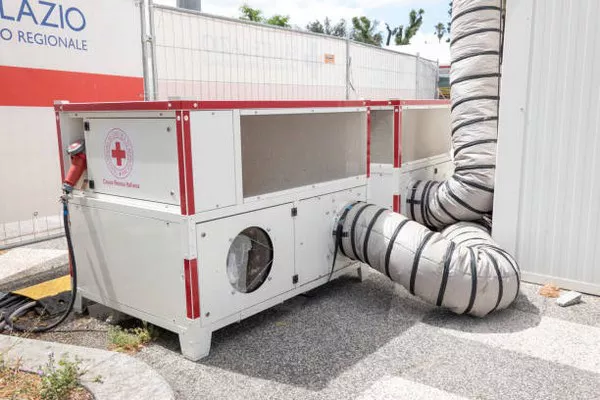When it comes to ensuring uninterrupted power supply for your 4-ton heat pump, choosing the right generator size is crucial. A generator acts as a reliable backup during power outages, ensuring your heat pump continues to operate efficiently. In this article, we will delve into the key factors that determine the appropriate generator size for a 4-ton heat pump and provide valuable insights for homeowners and HVAC professionals.
Understanding the Basics
Before delving into the specifics of generator sizing, it’s essential to understand the basics of heat pumps and their power requirements. A 4-ton heat pump is designed to heat or cool a space efficiently. The term “ton” in HVAC (Heating, Ventilation, and Air Conditioning) refers to the amount of heat needed to melt one ton (2000 pounds) of ice in a 24-hour period.
Typically, a 4-ton heat pump has a cooling capacity of 48,000 BTUs per hour. The power requirements for these systems vary, and it is essential to consider both starting and running wattage when selecting a generator.
Calculating Starting and Running Wattage
The starting wattage, also known as surge or peak wattage, is the extra power required by the heat pump during its initial startup. This surge is temporary and lasts only for a few seconds until the compressor and other components reach their operational state. Running wattage, on the other hand, is the continuous power consumption once the heat pump is running.
For a 4-ton heat pump, the starting wattage can be approximately 6,000 to 7,000 watts, while the running wattage may range between 2,500 to 3,000 watts. It is crucial to consult the manufacturer’s specifications for precise information on the power requirements of your specific heat pump model.
Selecting the Generator Size
Once you have a clear understanding of the heat pump’s power requirements, selecting the appropriate generator size becomes a more straightforward task. The generator’s capacity should be sufficient to handle the starting wattage, ensuring a smooth and reliable startup without overloading the generator.
A commonly recommended guideline is to choose a generator with a capacity that is at least 20% higher than the total starting wattage of the heat pump. In the case of a 4-ton heat pump with a starting wattage of 6,000 watts, a generator with a minimum capacity of 7,200 watts (6,000 watts + 20%) would be suitable.
Consider Other Appliances
While determining the generator size for your heat pump is critical, it’s equally important to consider other essential appliances and devices that may need power during an outage. Refrigerators, lights, and electronic devices contribute to the overall load on the generator. Make a list of these additional items and calculate their total wattage to ensure the generator can handle the combined load.
Fuel Type and Generator Efficiency
The type of fuel your generator uses also plays a significant role in its overall performance. Common fuel options include gasoline, propane, diesel, and natural gas. Each fuel type has its advantages and disadvantages, such as availability, storage requirements, and environmental impact.
Consider the availability of the chosen fuel in your area and select a generator that aligns with your preferences and circumstances. Additionally, pay attention to the generator’s efficiency, as fuel consumption can impact the overall cost of operation and the runtime during an outage.
Voltage Compatibility and Transfer Switch
Ensure that the generator you choose provides the appropriate voltage for your heat pump and other connected appliances. Most residential heat pumps operate on a standard voltage, but it’s essential to verify compatibility to prevent potential damage.
Investing in a transfer switch is another crucial aspect of a seamless backup power system. A transfer switch facilitates the safe and automatic transition of power from the main electrical grid to the generator. It prevents backfeeding, ensuring the safety of utility workers and preventing damage to your generator and connected appliances.
See also How Does A Generac Generator Get It’s Power? A Comprehensive Guide
Conclusion
Selecting the right generator size for a 4-ton heat pump is a strategic decision that requires careful consideration of various factors. By understanding the basics of heat pump power requirements, calculating starting and running wattage, and accounting for other appliances, you can make an informed choice that ensures reliable backup power during outages. Consult with HVAC professionals and generator experts to address specific concerns and ensure the longevity and efficiency of your backup power system.

